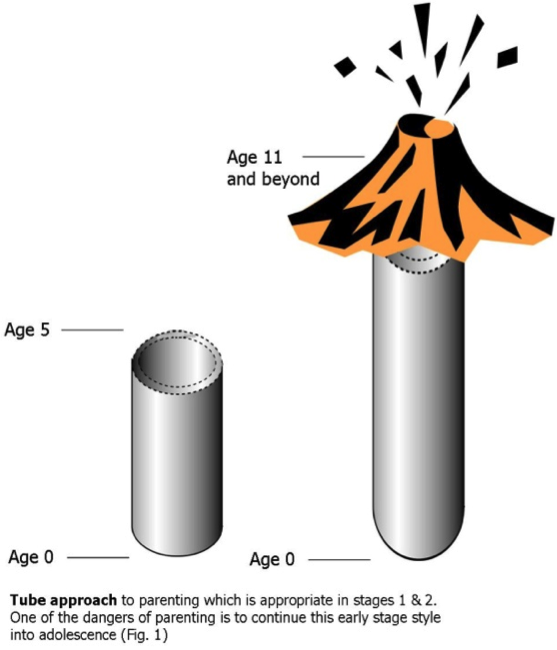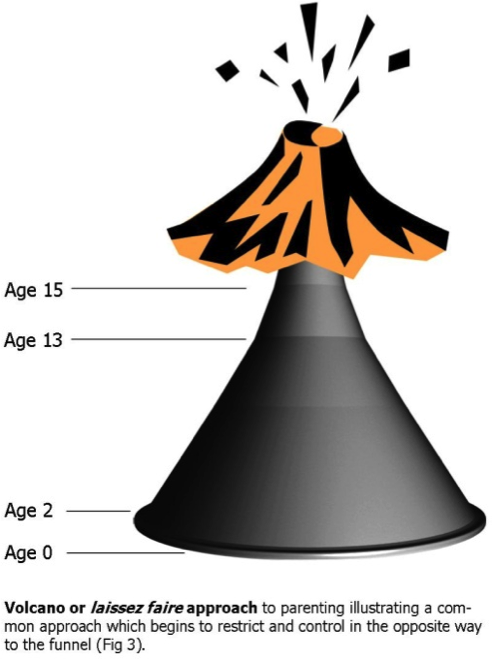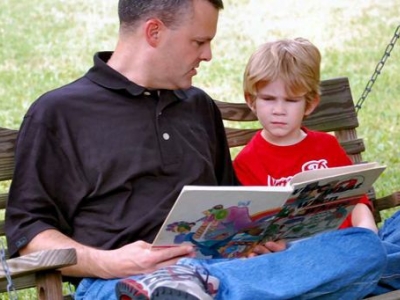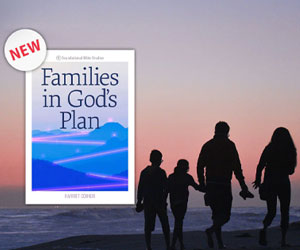
Choosing between three styles of parenting
Jim French says he and his wife chose a middle way between authoritarian and permissive parenting.
As my wife Tanja and I began talking about how we would parent, we reflected on our own experiences growing up. I grew up in the predominant parenting style of the time which was authoritarian. This was the norm, 'Do what I say', 'Do it or else', and no explanation given. This style of parenting could be described as having a lot of strong boundaries, but not much instruction on why. For many parents at the time (probably including mine), parenting was about suppressing waywardness by force and coercion.
It is easy to look back and criticise an earlier generation and the predominant style. It is also easy to begin to either adopt that same style or, as it seems with many parents today, react against this style of parenting and move to the other end of the parenting spectrum. As Tanja and I began to work out what we would do, we were thankful for our parents who had good, loving intentions, but we took a middle way between the two predominant parenting styles; authoritarian and permissive.
It may be helpful at this point to outline three of the major styles of parenting. This was something that in an earlier post I had hoped to explain in our approach to parenting.
Authoritarian parenting
 This style seeks control of behaviour through external means and restraint. As stated earlier, it may be typified by sayings like, “Do it or else”, where the 'else' may well be physical or verbal punishment.
This style seeks control of behaviour through external means and restraint. As stated earlier, it may be typified by sayings like, “Do it or else”, where the 'else' may well be physical or verbal punishment.
In the first two stages of a child’s life that I call Catering (Ages 0-2) and Conforming (Ages 2-5), there is not much scope for rational explanations, so in these stages parents establish their authority. In this phase, the parents without being idolatrous, are like God to their child (Ex 4:16; 7:1, 2 Moses is like God to both Aaron & Israel). In this sense, during these phases, the child is being formed for obedience. In our house we have a three step mantra with hand actions, 'Listen, obey, straight away'. As our children listen to, and obey us, they learn obedience. The goal is that they listen and obey God as they mature, and this motivated by love. In these early years, our parenting style may look very authoritarian, however our hope is that we will adjust our approach as our children mature.
The outcomes of the authoritarian style of parenting (if it continues past the first two developmental stages) is good behaviour up to a point, but it's not from the heart or orientated to the other person out of love, but out of fear. When I think about this style of parenting, I picture it like a tube that may result in conflict and rebellion if this authoritarian approach continues past about the age of 5. This was my experience as a young teenager who went through a rebelillious period from age 12 to 20.
Tanja and I did not want to parent in this style, though I recognise in myself a tendency to want to parent in this way, as it had been model to me.
Permissive or laissez faire parenting
 The general direction that parenting has taken in the western world may well be a result of a reaction against the early common authoritarian parenting style. Though in my case, and I suspect in other people, there can be a tendency to parent in a more authoritarian way by those who were brought up in that style.
The general direction that parenting has taken in the western world may well be a result of a reaction against the early common authoritarian parenting style. Though in my case, and I suspect in other people, there can be a tendency to parent in a more authoritarian way by those who were brought up in that style.
My wife is European, and in my limited experience with parenting in Europe, permissive parenting seems to be a dominant style. The parent/s generally shows a great warmth and affection to their child. However in the permissive or laissez faire style, there is very little intervention and restraint.
I believe the results of this style of parenting are impacting our society. I would picture this approach as a volcano, no restraints or boundaries early on then an attempt to ‘reign in’ bad behaviour in adolescence. This can result in eruptive behaviour and distance between child and parent. It seems that a child brought up in this way has had very few boundaries early on, however when adolescence arrives the parents are aware that some of the choices being made are not wise, and then try and restrict the boundaries.
However, the pattern of behaviour is already set and the result is conflict, rebellion and at times broken relationship. Tanja and I want to avoid this breakdown in relationship with our children during these adolescenct years. We are aware of the developmental needs of children to mature and that individuation is part of maturity as they seek to begin to shape their own world view, take on their own faith in Jesus, and look for significant others' input into their lives. But we still want to be there for them, and in good relationship with them. We hear people say things like 'just wait until they become teenagers and then the trouble starts' and we wonder whether this becomes a self-fulfilling prophecy and it is one that we don’t desire. So we pray and plan to parent differently than what seems to be the norm in our society.
Authoritative parenting
This is the middle way that Tanja and I chose to raise our children.
In this style of parenting, parents are emotionally engaged with their child, showing affection and warmth. However there are limits that are appropriately set depending on age, developmental stage and maturity. The moral principle is given as instruction, as the setting of limits is an important aspect of authoritative parenting. The goal is to grow mature children who are able to reason and take responsibility.
The authoritative style can be pictured as a funnel, where tight boundaries are set early on, but are loosened as the child matures, shows responsibility and understanding of underlying moral principles.
The authoritative parenting style presents the middle way between authoritarian and permissive. As a simple example, the authoritarian parent allows no choice at breakfast; the child is allowed only strawberry jam on their toast. The permissive parent gives the child unlimited choice of what to have for breakfast. The authoritative parent gives a choice between the boundaries they set - the child may choose between porridge and corn flakes, and has a choice of vegemite or nutella on their toast.
The goal that Tanja and I have under God for our children is that they grow up to be mature Christian people, having developed good moral reasoning through our prayers and instruction. We want to allow our children to have more and more responsibility as they show maturity in the choices they make, and responsibility in their behaviour.
For more articles from Growing Faith, subscribe to our monthly e-newsletter.
To hear about the latest books and resources from Youthworks Media, subscribe here.







